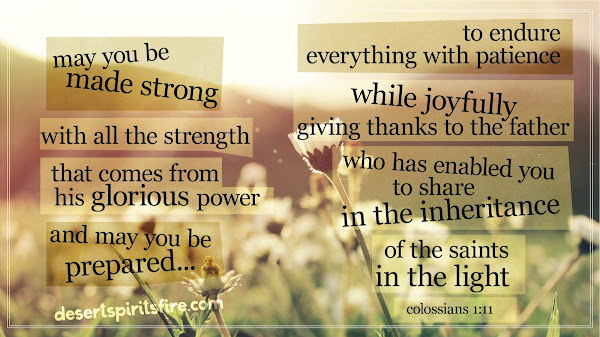Colossians 3:1-17
1Because you have been raised with Christ, seek the things that are above, where Christ is, seated at the right hand of God. 2Set your minds on the things that are above, not on the things that are on earth, 3for you have died, and your life is hidden with Christ in God. 4When Christ who is our life is revealed, then you also will be revealed with him in glory.
5Put to death, therefore, whatever in you is earthly: sexual immorality, impurity, passion, evil desire, and greed (which is idolatry). 6On account of these the wrath of God is coming on those who are disobedient. 7These are the ways you also once followed, when you were living among such people. 8But now you must get rid of all such things: anger, wrath, malice, slander, and abusive language from your mouth. 9Do not lie to one another, seeing that you have stripped off the old self with its practices
10and have clothed yourselves with the new self, which is being renewed in knowledge according to the image of its creator. 11In that renewal there is no longer Greek and Jew, circumcised and uncircumcised, barbarian, Scythian, enslaved and free, but Christ is all and in all!
12Therefore, as God's chosen ones, holy and beloved, clothe yourselves with compassion, kindness, humility, meekness, and patience. 13Bear with one another and, if anyone has a complaint against another, forgive each other; just as the Lord has forgiven you, so you also must forgive. 14Above all, clothe yourselves with love, which binds everything together in perfect harmony.
15And let the peace of Christ rule in your hearts, to which indeed you were called in one body. And be thankful. 16Let the word of Christ dwell in you richly; teach and admonish one another in all wisdom; and with gratitude in your hearts sing psalms, hymns, and spiritual songs to God. 17And whatever you do, in word or deed, do everything in the name of the Lord Jesus, giving thanks to God the Father through him.
Colossians, Week 4
• More about Colossians from Pentecost 5
• More about Colossians from Pentecost 6
• More about Colossians from Pentecost 7
Broad Overview
Textual and other evidence shows Saul/Paul of Tarsus almost definitely didn't write this fairly early NT letter. Part of its message relates to how people in the house church at Colossae had gotten involved in activities that contradicted the sufficiency of Jesus Christ—"Christ Alone" as the Reformers would express it. Colossian congregants had dabbled in spiritual practices minimally unnecessary for Christians, maximally harmful to their own well-being and that of their neighbors.
The last part of Colossians that's not part of this lectionary series includes an example of "household codes," a type of instruction common in those days and found elsewhere in scripture. Household codes typically outline proper behavior for relationships that can include slaves, masters, children, husbands, wives, servants. They require serious study of the historical and anthropological background and in general are not suitable for reading or interpreting during worship.
Colossians Chapter 3
Today's passage advises against any spoken or bodily activities that separate us from each other. Don't misinterpret words or actions, don't be angry without cause, don't slander anyone. Doesn't most slander and libel happen because the individual thinks making someone else look worse will make them (the speaker or writer) look better? Avoid sexual activities that objectify others, which would include viewing or reading pornography.
Verse 11 parallels Galatians 3:28 and affirms our essential unity in Jesus Christ: "…there is no longer Greek and Jew, circumcised and uncircumcised, barbarian, Scythian, enslaved and free, but Christ is all and in all!" God loves healthy diversity of all kinds; of course distinctions remain and we value them, but don't place any characteristic, ethnicity, or ability above another, don't celebrate anything as more important than each individual's – and the community's – identity in Jesus Christ.
For some reason the lectionary suggested only verses 1 through 11, leaving out verses 12 through 17 that answer "if we're not supposed to engage in those things, then how are we supposed to act?" Engage in behaviors that bring us together! If you've been online recently you may have noticed, "If you can be anything, be kind. Kindness always is possible."
Empire and Grace
We began this Colossians series by noting members of the church at Colossae were colonials amongst the inescapable reality of Roman imperialism. Like every empire from Egypt through Babylon and Persia, to Spain, Russia, Royal Dutch Shell (that maybe believed changing its name to simply Shell a few months ago softened its corporate image), Amazon, and Toyota, Rome dealt death by making production and profits primary, always at the cost of life.
Empire literally is restless, never ever slows down or rests. Empire never takes a time out.
We can help fulfill our baptismal vows to work for justice, in current parlance to "resist" death and empire with life-generating behaviors. Be kind. Love each other. Care for creation. Keep a time of sabbath at least once a week! Cease from work, quit that busyness, welcome life as gift. Acknowledge existence as graced.
As an individual who sometimes feels powerless, I still do my best to live locally, buying food, household items, etc., that have been grown and manufactured in ways that don't exploit workers, that don't cause more environmental degradation in making and transporting them. Only China manufactures KN-95 masks I still wear everyday, though in time I hope to revert to standard masks I've bought from small entrepreneurs. Near-constant congestion at the twin ports of Los Angeles and Long Beach helps keep me super aware.
What else can we do? 3:16 "…with gratitude in your hearts sing psalms, hymns, and spiritual songs to God."


